Dayu vs Noah: Two Floods, Two Civilizations
One organized a nation to fight. The other saved a few and left. That choice still defines how East and West think about crisis and responsibility.
I. Flood myths reveal what civilizations value
Ancient myths are not just stories. They are blueprints. They tell future generations how to think, how to act, and what to believe in. When you look at the oldest flood stories in Chinese and Western civilizations, you don’t just see water. You see two different moral codes being built. In both myths, the land is drowning. In both, humanity faces disaster. But what the hero does next is not the same. In China, Dayu stayed and fought the flood with the people. In the West, Noah built a boat, saved a few, and left the rest behind. That split still shapes how each culture thinks about survival, leadership, and human worth.
II. Dayu stayed and built with the people
Chinese legend says that during a massive flood, fields disappeared, homes were washed away, and people were dying. Dayu’s father, Gun, had tried to stop the water by blocking it. He failed. The emperor punished him with death. Dayu took over but chose a different path. He didn’t try to stop the flood with force. He walked the land, mapped the rivers, studied the flow, and organized people to dig channels and redirect the water. It took thirteen years. He passed by his house three times and never stopped. He had work to do. Dayu didn't rely on gods or miracles. He relied on planning, engineering, and collective effort. He didn’t act alone. He turned a scattered population into a team. That is why he became more than a hero. He became a symbol of a civilization that believes in solving problems together.
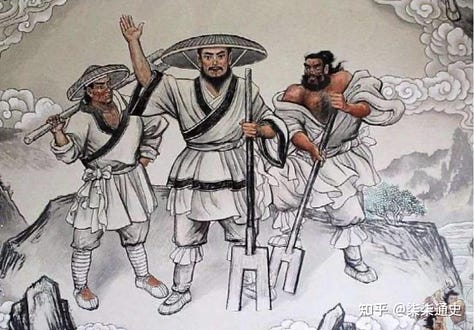
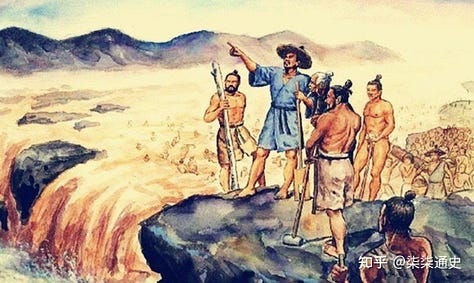
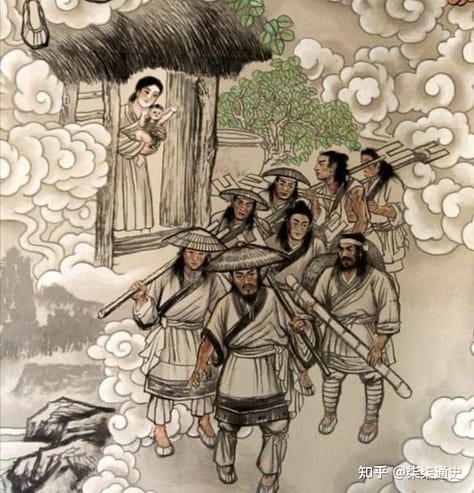
III. Noah built a boat and left everyone behind
In the Bible, God decides that humanity has failed. The punishment is total: a flood that will wipe out everyone. Everyone, that is, except Noah and the animals he brings aboard. Noah doesn’t try to stop the flood. He doesn’t warn his neighbors. He doesn’t organize. He follows instructions. He builds an ark. He saves his own and floats above the disaster. The rest of humanity is erased. The story rewards obedience, not leadership. Survival belongs to those selected by divine will, not those who act. It tells you that when a catastrophe comes, most people won’t make it. And that’s considered normal.
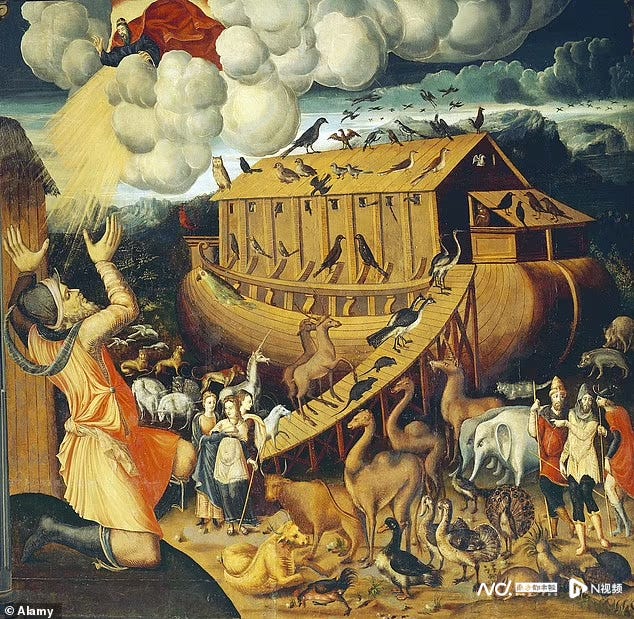
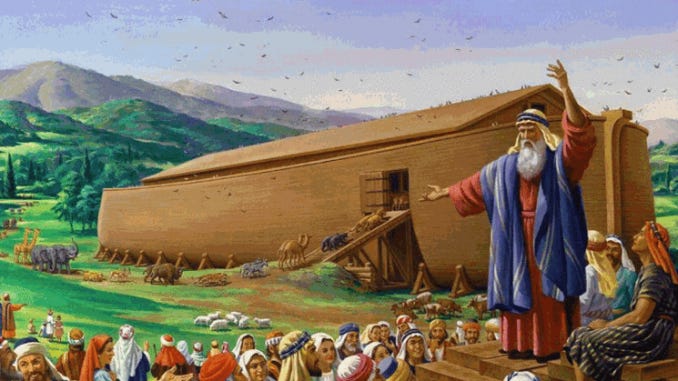
IV. Dayu vs Noah is collective vs selective survival
These two stories are not just cultural details. They reflect a deep divide in values. In the Chinese tradition, leadership means taking responsibility for everyone. Problems are solved through intelligence, labor, and coordination. Nature is something people can shape. In the Western story, survival is granted to the chosen few. Disaster is divine punishment. Most people are beyond saving. The solution is not action but submission. One story believes in people. The other believes in fate. One says: organize. The other says: obey.
V. This is also about collectivism vs elitism
The flood myths also show how each culture sees power. In the Dayu model, no one is above the crisis. Even the leader sacrifices and suffers. He doesn’t get a special escape plan. He builds one system for everyone. In the Noah model, one man gets the message. He saves his own circle. He builds a private escape while the world dies. This isn’t just a religious idea. It shows up in politics, economics, and daily life. In Western crisis management, the elite always get the lifeboat. When the system breaks, they are the ones with exits, whether that’s luxury bunkers, private hospitals, or escape rockets to Mars. The majority is told to wait, pray, or accept the loss. Collective survival is replaced by selective privilege. Dayu’s story rejects that. It demands a different answer: no one is left behind.
VI. Dayu didn’t wait for rescue. He became the rescue
Dayu wasn’t chosen by fate. He wasn’t given secret knowledge. He looked at a problem and started working. He didn’t ask who deserved to live. He asked what needed to be done. And he did it. No miracles. No chosen few. Just hard decisions, long days, and people moving in the same direction. That’s how he became legendary. Not by escaping. By staying and fixing. That’s the logic of a civilization that believes in people. You don’t need a divine message. You don’t need a boat. You need a plan. You need others. You need the will to build when the water comes.

I loved this! Beautifully written. This offers so much contemplation. Thank you.
Excellent comparison and why I am drawn to China probably